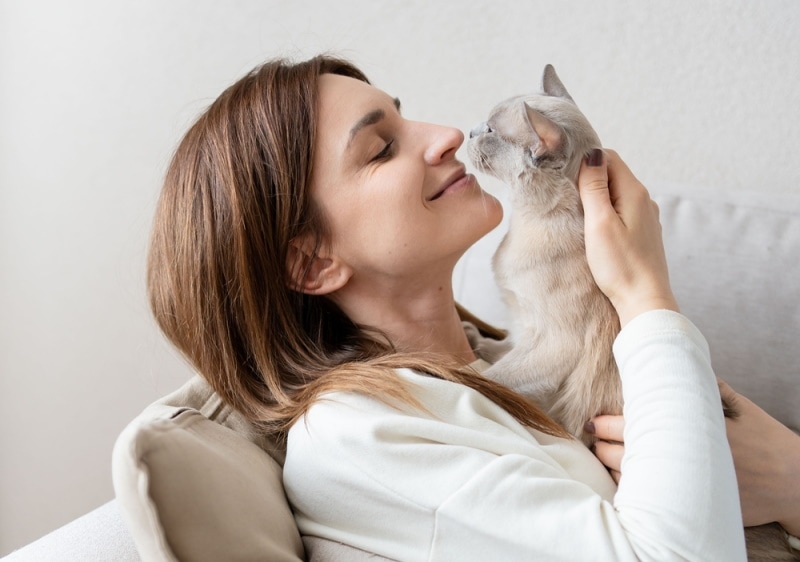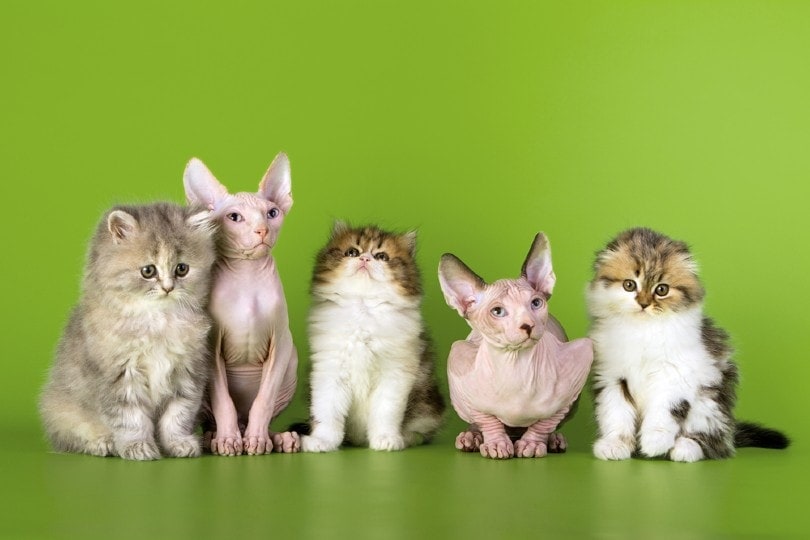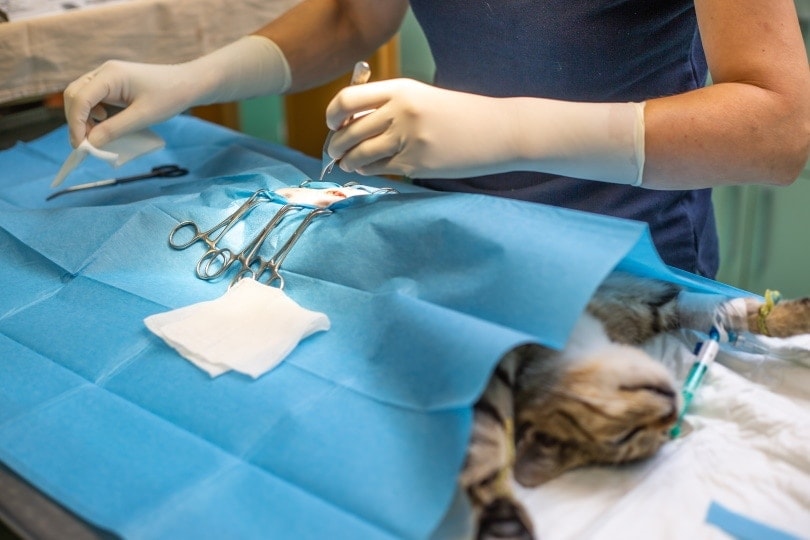Why Cats Nibble On You (Love Bites): 5 Vet-Verified Reasons

Updated on
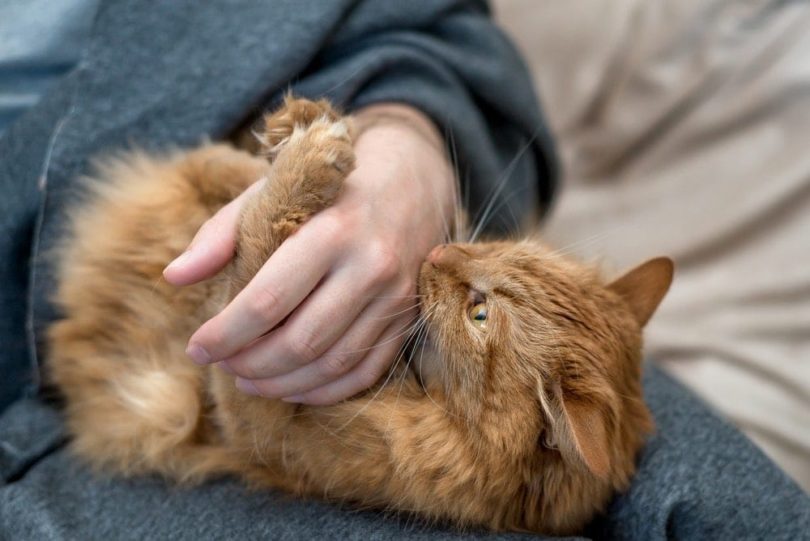
Have you ever noticed that your cat will sometimes put their teeth on you when you are in the middle of petting them? In these situations, there aren’t usually other signs of aggression such as hissing or clawing, and it may happen when you are stroking your kitty. If your cat has ever given you a “love bite,” you are probably wondering what the reason for this behavior is. After all, there is usually no obvious impetus for biting and it normally does not break any skin.
Keep reading to learn about a few reasons why your cat may nibble on you in this way.
The 5 Reasons Why Cats Nibble On You
1. It’s a sign of affection.
Perhaps this is the most obvious reason; after all, some often call this behavior “love biting”!
While you may not be used to the idea that gentle biting could be a sign of affection, for your cat, it can be a normal behavior. Your pet is acknowledging you and your interaction at a new level. Keep in mind that this type of biting should not be painful; it’s more ticklish than anything. Therefore, if your cat’s bites don’t feel just playful, you should consult with your vet or cat behaviorist to understand the reasons behind these episodes.

2. Your cat wants you to stop petting them.
Cats are funny animals. They enjoy pets until they don’t. Even if your cat likes being pet in general, they may simply be trying to tell you that they have had enough of the interaction or that they aren’t in the mood for pets right now. It could be that you are stroking your cat too much, too aggressively, or too quickly. It may also be that your cat simply doesn’t want you to pet a particular part of their body. Most cats prefer to be scratched under their chins and behind their ears as opposed to on their lower bodies, on their bellies, and around their tails. If you are interacting with a new cat, it might be a good idea to start out slowly to get a sense of their body language whenever you pet them to better understand what and where your cat likes and doesn’t like to be pet.
3. Your kitten is learning.
If you have a kitten or a very young cat, nibbling may be something you observe as your kitten learns how to interact through life. Kittens also lose their baby teeth and get their permanent dentition between 3 and 6 months of age; this period may go unnoticed or have associated signs such as drooling, nibbling, or chewing on objects.
4. Your cat is grooming you.
Grooming is an instinctual behavior for cats, whether they are grooming themselves or other cats (allogrooming), felines will engage in this activity to remove dirt and parasites, to regulate their body temperature, and to bond with others.
This behavior serves several purposes and, generally speaking, nibbling and licking should be taken as a sign of friendship that you can be proud of.
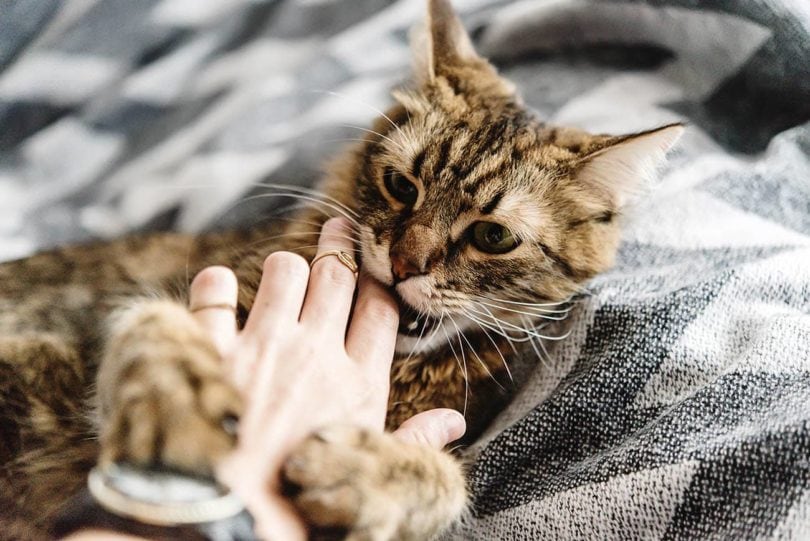
5. Your cat wants your attention.
Whether they want food or simply want love, your cat might just want to get your attention. Set aside some time to interact with your cat on a daily basis so that they get plenty of play and human interaction time. You might even take love bites as an indication that your cat would like to engage you in a game of hide and seek, or rather, cat and mouse.
Conclusion
It can be confusing when your cat starts nibbling on your hand, but there are usually other signs that can hint at what your cat is trying to tell you. If your cat is also vocalizing, scratching, or otherwise displaying aggressive behavior, back off for a while and give your cat some space. Do not spray, shake, or otherwise further startle your cat, as this could lead to further aggressive behavior.
- You Might Also Like: Why Do Stray Cats Like Me? 6 Likely Reasons
Featured Image Credit: Irzhanova Asel, Shutterstock


